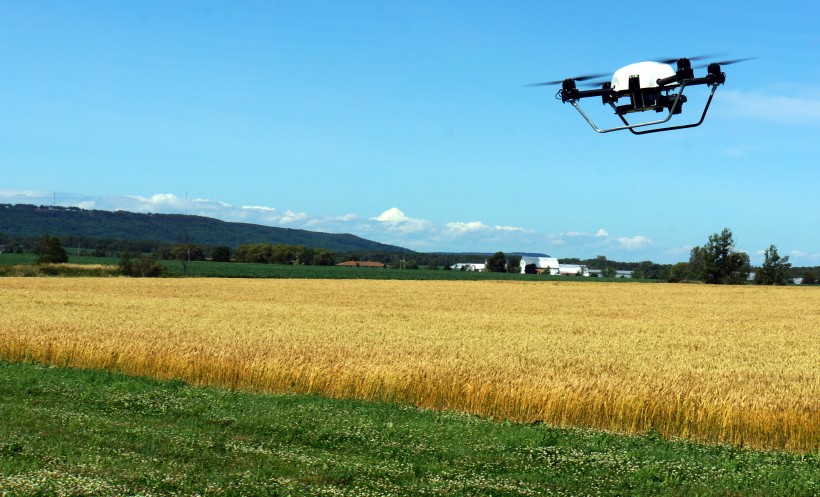A year after it pivoted away from a search and rescue product, SkySquirrel Technologies is launching a drone-based product that can help farmers improve growing conditions.
Based in Inverness on Cape Breton Island, the company has always been dedicated to using drones to help customers do things that would be more difficult to do on the ground. The original team of Tim Stekkinger, Richard Van der Put, and Stephane Sogne had planned to use the drones to help search and rescue teams look for lost people. But the market proved difficult to commercialize — too small, too hard to develop revenue channels.
So they have been developing an agricultural product that can help farmers improve their yields by efficiently collecting data on what’s going on in their fields and responding before problems can occur. The company is now developing two commercial drones, and the first product, called Aweo, will be available next month.
“When you have a flying platform equipped with multi-spectral cameras,” Stekkinger said in an interview at the company’s headquarters, “you can get a lot of data on the crops. It can help a farmer to optimize yield.”
SkySquirrel uses drones to hover over fields of crops using cameras to collect data on four areas: yield estimation, nitrogen stress, water stress and disease detection.
This information can help farmers in several ways. For example, if farmers know early whether their crop will be big or small, and when it may ripen, they can line up the appropriate number of workers to pick it at the right time. By learning early whether there is too little or too much water or nitrogen in certain patches of a field, the farmer can make adjustments before it becomes a major problem.
“What many farmers are very excited about is early disease detection because a disease can destroy a significant part of your crop,” said Stekkinger.
Drones are becoming more common in agriculture because of their efficiency in gathering data. Stekkinger said it could take six hours for a farmer to scout a 40-hectare field, but a SkySquirrel drone can do it in half an hour. The SkySquirrel team and another Atlantic Canadian startup working in the same field, Resson Aerospace of Fredericton, have been in contact to compare notes, said Stekkinger.
Agriculture is such a massive industry that the market could likely support a lot of these companies. Already, SkySquirrel has fielded inquiries from 20 countries from around the world and is working on a pilot program with academics in Greece. The company has eight full-time employees and one part-time worker and has raised two rounds of finance from angel investors.
The Inverness company is offering services outside of agriculture. Its web page highlights that it can mount cameras on drones and inspect structures such as transmission towers or wind turbines — hard-to-reach assemblies that require regular inspection and maintenance. But the focus, for now, is on agriculture.
“It can save so much time for a farmer,” said Stekkinger, “and reduce farm inputs (such as fertilizer) by about 20 per cent, depending on the crop.”
Disclaimer: Entrevestor receives financial support from government agencies that support startup companies in Atlantic Canada. The sponsoring agencies play no role in determining which companies and individuals are featured in this column, nor do they review columns before they are published.










